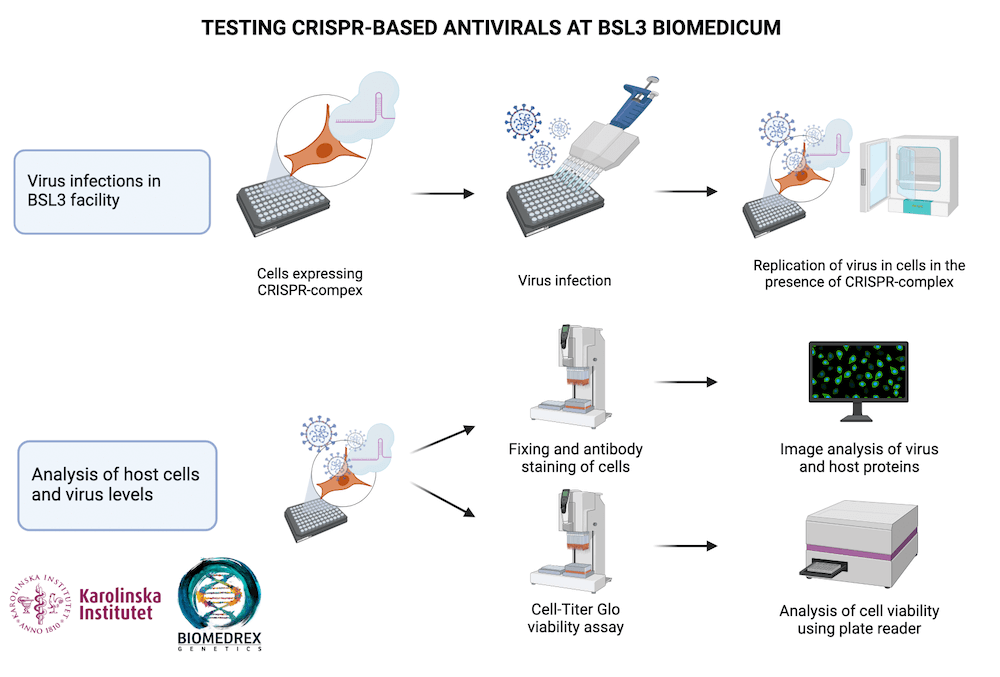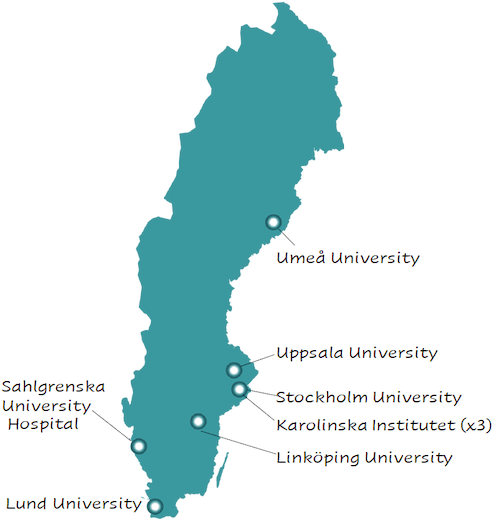BSL3 Biomedicum-SciLifeLab Collaborative Platform
PI(s)/Head responsible for the resource:
Antonio Rothfuchs
Host organisation(s):
Karolinska Institutet
Resource description:
The Biosafety Level 3 (BSL3) laboratory is a barrier with advanced work routines, equipment with extra safety measures, manned by highly-qualified personnel (HQP) that perform experiments, introduce technology, and train users. It is essential for research activities on risk-group 3 pathogens and as such to mount a rapid response to new outbreaks. Research activities in BSL3 include pathogen isolation and culture, evaluation of pathogen function and interaction with host cells, establishment of diagnostics and pathogen-detection methods, validation of pathogen inactivation methods, measurement of pathogen half-life on surfaces and in air, drug screening, antimicrobial resistance screening, vaccine testing, and many other infection assays in cells, tissues, or organoids. The BSL3 laboratory is incumbent to Pandemic Laboratory Preparedness (PLP).
This resource involves two separate components:
(1) Inclusion of Karolinska Institutet’s BSL3 facility in Biomedicum as a capability within SciLifeLab’s PLP program.
(2) Establishment of the Swedish BSL3 Network, a platform for BSl3 facilities to share experiences, resources and network.
1. Access to Swedish researchers to a state-of-the-art biosafety level 3 (BSL3) facility
BSL3 Biomedicum in Solna is approved to handle various RG3 pathogens (viruses, parasites and bacteria), including several genetically-modified variants (R-GMM). As part of the PLP program, the facility supports research activities integrated in its capabilities that are available also as a service to users.
Advanced capabilities for Pandemic Preparedness:
The facility has unique capabilities for high-throughput (HTP) screening and for pathogen aerobiology. For HTP, the facility is equipped with pipetting robotics and advanced plate reading to screen compound libraries in BSL3 using an imaging-based approach, and a luminescence-based approach to study cell-cytopathic effects. The HTP capability draws on a close collaboration with SciLifeLab’s CBCS (Chemical Biology Consortium Sweden) infrastructure. For aerobiology, the facility is equipped with a world-unique capability to study the decay of pathogens in aerosol, reliant on a tailored aerosol chamber and air sampling devices. The facility has air sampling methods to detect SARS-CoV-2 in aerosol by culture and molecular methods.
For more information on BSL3 Biomedicum (including information on access, use, full instrument capabilities and contact), please see the dedicated BSL3 facility page.

2. The Swedish Biosafety Level 3 (BSL3) Network
The Swedish BSL3 Network (SB3N) is an open network for Swedish BSL3 facilities, in academia and government (BSL3 Directors, HQPs, and users alike) to come together to share experiences, knowledge, and technology. The network maps Swedish BSL3 capabilities and specialisations, defines joint actions for PLP and provides visibility and outreach for its members. Current members in the network come from 6 different Swedish universities and 1 university hospital. SB3N collaborates with the Canadian Consortium for Academic BSL3 Laboratories (CCABL3) and the Coronavirus Variants Rapid Response Network (CoVaRRNet).
For more information on the BSL3 Network (including information on access, use, and contact), please see the dedicated BSL3 network page.

Contact information:
Marianna Tampere
Coordinator Swedish BSL3 Network
Email: marianna.tampere@ki.se
Antonio Gigliotti Rothfuchs
Director, BSL3 Biomedicum
Email: antonio.rothfuchs@ki.se